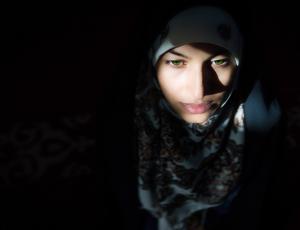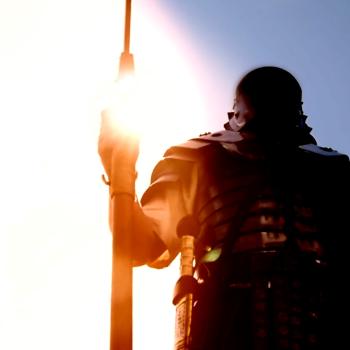
Ignorance and Terrorism
Terrorism and Today’s News
It’s everywhere, isn’t it? Just turn on today’s latest news and you will see extreme, sensationalistic news of explosions, buildings reduced to rubble, stunned, bloody victims being interviewed by journalists, ever-seeking stories of lament and war-induced carnage that feeds today’s news. You will also see the shadows of the very worst of humanity in the face of masked terrorists who know little of the Quran and even less of how their heinous actions are reducing global support from non-Muslim countries. Is that their intention? Do the terrorists believe that Muhammed’s message was solely intended for an Islamic-centric world? Are Quranic principles really driving Islamic terrorists or is it something else?
Background
Writers and journalists walk a fine line these days when it comes to Islamic topics. Much of the non-Muslim world sees very little of Muslim way of life and knows even less about Islamic principles and of the social order in a religious state. Outside the world of the Imams and mosques, the world mainly sees what appear to be antiquated, restrictive societies with norms such as covered faces and non-egalitarian behavior between men and women.
And this is the key. Islamic-centric societies where the needle tilts towards Quranic principles, often maintain remnants and in some cases large pieces of Islamic sharia law within their governments. Of course, there are exceptions such as Turkey and other, more moderate parts of middle eastern countries but these are indeed the exceptions. According to the latest statistics, only 29 of the 42 Muslim-centric countries actually have secular governments. And even within the 29, there are some blurry distinctions between God and government. Hence, Islam and its most sacred Quran doesn’t appear to have really crossed the reconciliatory bridge into the secular world. Is this even possible or desired by its believers? But does it really matter in the case of terrorism?
The Contradictions: Murder vs Justifiable Killing
Make no mistake. Any killings are reprehensible, and the execution of defenseless people have no place in the modern world.
The recent atrocities committed on the Gaza strip have taken Middle Eastern/Israeli peace relations back at least 50 years. Why did this happen? What possible reason did Hamas use to justify their actions?
To add some precursory perspective here, the sacred texts of the Abrahamic religions often contain contradictions in principles. The Bible has many contradictions including some actions taken by the major prophets. Many followers of Christianity and Judaism are often unaware of one very blatant contradiction within the Old Testament regarding murder vs what is deemed as “justified” killing. Most Jews and Christians are very familiar with the commandment of “Thou Shalt Not Kill” (Exodus 20:14). However, many are either very surprised to hear or else, they cannot explain clearly how Moses, operating under the order of God, ordered numerous executions of the sinners of Israel after they lost faith and began worshiping a pagan idol (a golden calf) in lieu of God in Exodus 32:27
(Moses)…said to them, “This is what the Lord, the God of Israel, says: ‘Each man strap a sword to his side. Go back and forth through the camp from one end to the other, each killing his brother and friend and neighbor.’ ” 28 The Levites did as Moses commanded, and that day about three thousand of the people died. 29 Then Moses said, “You have been set apart to the Lord today, for you were against your own sons and brothers, and he has blessed you this day.”
Justifiable killing in the Old Testament relates to several specific sins including those of worshiping false gods, idols, bearing false witness, and others related to what are defined as deviant sexual behavior. It is viewed and weighted differently vs murdering of defenseless believers. However, can any Christian or Jew say that this is the totality of the message of the Bible in our modern society?
In the Quran, there are likewise many instances where the killings of non-believers appear “justified”. Specifically, in chapter 2: verses 191 through 193, we read:
And fight in the way of God against those who fight against you but do not transgress. Truly God loves not the transgressors. And slay them wheresoever you come upon them whence they expelled you, for strife is worse than slaying. But do not fight them near the Sacred Mosque until they fight with you there. But if they fight you, then slay them.
Such “fighting words” are extracted as excerpts from the Quran and represent just the type of extremist tenets being hammered into terrorists’ minds by forces that are ironically not founded in Islam.
As with the Bible, there are many other instances in the Quran where killings are described as justified but the question here is really more one of whether terrorists and their supporters are really cognizant about who is really steering their propaganda wheel in the modern world masked as incomplete messages from Allah.
The messages of killings are incomplete because the Quran, like the Bible, is not a guidebook for executions. In fact, it is a guide for peace. Apart from the five well-known pillars of Islam which include charity, the virtue of temperance is encouraged as evidenced with the following passage from Chapter 16:125-126
Call unto the way of the Lord with wisdom…. And dispute with them in the most virtuous manner. Surely thy Lord is He who knows best those who stray from His way and He knows best the rightly guided. And if you would punish, then punish with the like of that wherewith you were punished. But if you are patient, then that is better for the patient. So be patient and thy patience is only with God. And grieve not on their account, nor be distressed by what they plot. Truly God is with those who are reverent and with those that are virtuous.
Can Islam really be separated from Statutory Law?
There are some issues with reconciling Islamic principles and Sharia law from secular law. Much of this difficulty has to do with two largest groups of Muslims and their disagreements over who should rule over Muslims and how. The Shiites historically, have believed that only descendants of Muhammed (hereditary monarchies) should rule over Muslims whereas the Sunnis believed in a more democratic solution where rulers should be elected based on their belief in Allah and in the continuance of his message.
As mentioned earlier, only 29 of the 42 Muslim majority countries have secular governments. But each is not religiously agnostic, and some offer a blended version in a “gray area” somewhere between a democracy and a Muslim monarchy. Some will hold open elections and yet staunchly adhere to qur’anic Sharia Law doctrines.
The Quran itself sends an unclear message to Muslims regarding the separation of Islamic tenets from the rule of law.
5:49 And judge, [O Muhammad], between them by what Allah has revealed and do not follow their inclinations and beware of them, lest they tempt you away from some of what Allah has revealed to you. And if they turn away – then know that Allah only intends to afflict them with some of their [own] sins. And indeed, many among the people are defiantly disobedient.
There are many other references throughout the Quran which warns Muslims against following capricious behavior of the People of the Book (followers of Judaism and Christianity). Most importantly, there is an enhanced emphasis on prompting Muslims to lean more heavily on the Quranic law vs any external, secular law.
Muslim-majority countries such as Turkey, Indonesia, several others outside of the middle eastern block of nations remain more aligned with democratic governments whereas the middle east is still a blend of monarchies and autocratic governments with kings and ruling Muslim factions yielding absolute final powers.
While no democracy is perfect, monarchies and autocracies failed in the western world due to the misalignment between the socio-economic resources distributed to the citizens in such nations. This disparity causes scarcities and hardships and propagates some of the never-ending black markets and extremism that we continue to see today.
What is the True Cause of Terrorism?
The Answer: The Evil Equation
Human history is unfortunately filled with horrible legacies of despotic kings and tyrants and the exploitation of their citizens and neighbors. Many tools were used to control and manipulate the actions of citizens and armies to commit heinous acts torture, murder and other atrocities. In many cases, sacred texts and secular ideologies and their manipulations via select extractions of their contents were used to rally whole populations or factions into acts of aggression and war upon others whether in response to or to punish pro-actively.
Regardless of the specific text excerpts used, the violence always emanated from some part of the population suffering economically. This phenomenon where lack of resources creates suffering predates any modern era religion by many centuries. Such suffering always follows a similar path or equation where Ignorance + the resultant Desperation = Extremist ideologies and Violence (Terrorism). We can refer to this as “The Evil Equation”. It is but one many such equations, but this is precisely the one being used today by terrorists and by those who fund their evil agenda.
Hence, today’s terrorists are not really acting under Islamic principles but rather using an exaggerated version of solely a selection of Allah’s messages taken out of the context of the totality of the Islamic message of peace and charity.
More importantly, today’s terrorists are largely funded by middle eastern nations who care very little about religious ideologies but more about territorial wealth and value. Thus, the actions of the recent days have very little to do with Islam but are really just the never-ending resurrections of conflicts and exploitations of who is entitled to land and resources. Abraham Lincoln once referred to this as “the eternal struggle between right and wrong”.
It is the eternal struggle between these two principles — right and wrong — throughout the world. They are the two principles that have stood face to face from the beginning of time; and will ever continue to struggle. The one is the common right of humanity, and the other the divine right of kings. It is the same principle in whatever shape it develops itself. It is the same spirit that says, “You toil and work and earn bread, and I’ll eat it.”(AbrahamLincoln.org)
The Gaza Strip has been a ceaseless war front between Israel and the Middle East for many decades. The conflict is not really a religious one but rather one of a displaced segment of Palestinian refugees and their poor economic conditions. After the formation of Israel in 1948, Palestinians who had occupied the region became displaced and after Egypt refused their migration, many refugees settled for working in Israel during the day and then returning to Gaza at night. They are not allowed to migrate to Israel and are not allowed to stay overnight there. This created a large black market smuggling economy and has led to further outcries for equitable resources among the Palestinians.
Large economy Muslim countries who have not been able to retake lands now under Israeli domain, remain obstinate in their efforts to remove Israel from the map. However, their objectives have more to do with wealth and territorial expansion than with any Islamic ideologies.
Here is the conundrum. Neither Israel nor Egypt, nor Iran, nor any Muslim or non-Muslim country in the region have offered to patriate the displaced Palestinians.
So what’s the alternative solution when you have a desperate segment of people with essentially nowhere to turn to?
The Way Ahead: Is a Two-State Solution Possible Now?
Prior to the violent events of the past weeks, there were more temperate discussions of a Palestinian/Israel dual-state solution. But no real traction to support independent states of both Palestine and Israel ever really took hold since such discussions began approximately 23 years ago when Israel ceded back control of the Gaza strip to the Palestinian Liberation Authority (PLO) who then proceeded to hand it over to Hamas in 2007.
In fact, Gaza has been an unofficial “prison” or at least a de facto restricted state which borders on 2 countries who do not want to host them (Israel & Egypt) and with nowhere else to turn except for the sea. There is widespread poverty and unemployment, and the Palestinians really have just been following the typical downward spiral and cycle of the aforementioned desperation and radicalization.
However, this, in no way, excuses extremism and terrorism but rather explains its development.
What Is the Way Forward?
The 21st century, despites its many evolving technologies, remains a haven for religious life in most countries. The Israeli/Palestinian solution will depend on more moderate thoughts and discussions not hosted with exaggerated ideologies, guns and other instruments of war but with more efforts towards peaceful compromise from both ends. An uninvested arbitrator nation or perhaps a joint nation brokered deal determining the modern divisions of land and resources between Israelis and Gaza-Muslims would perhaps, be a workable solution. Despite failed attempts at negotiation in the past, this is truly the only way forward.













